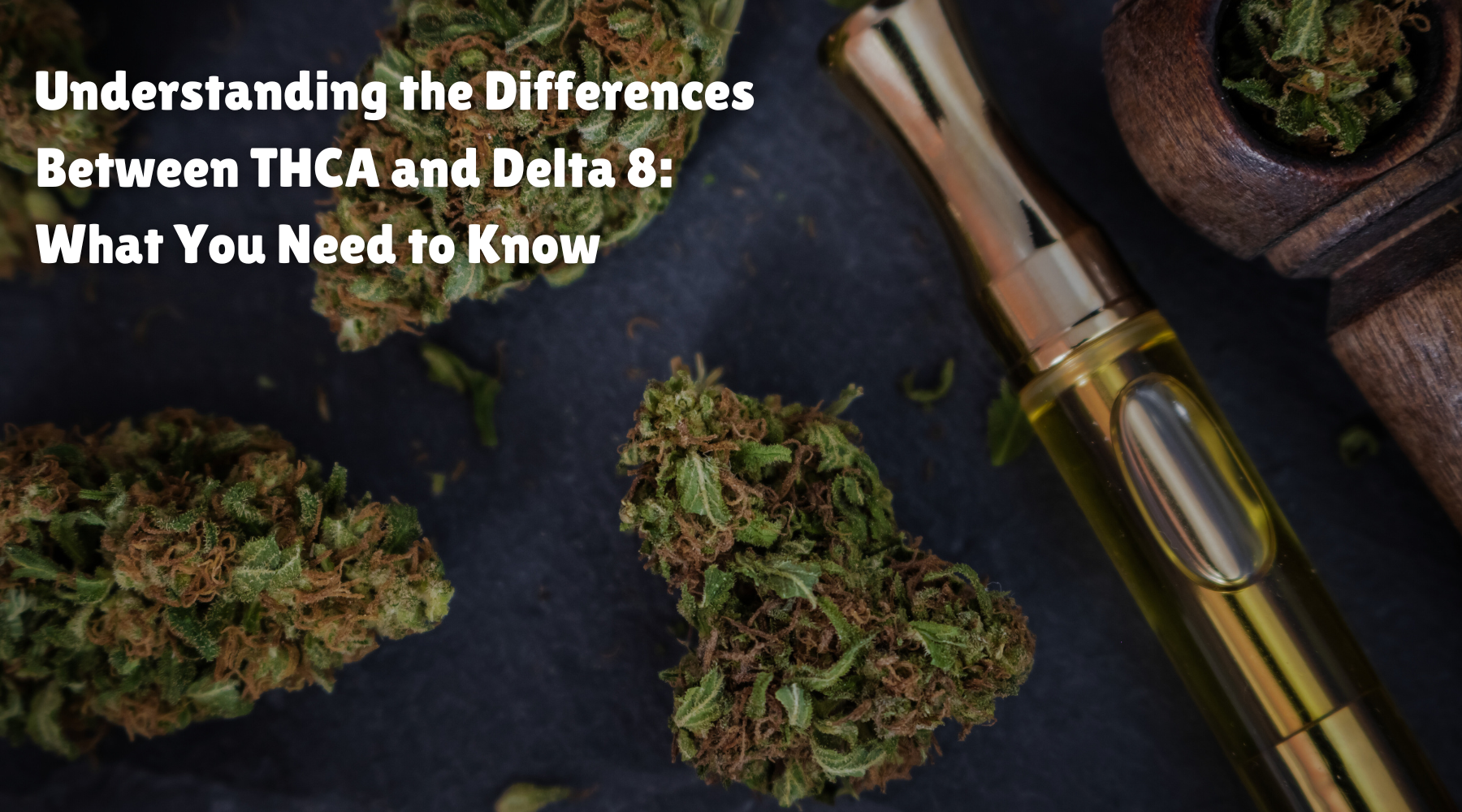Understanding The Differences Between THCA And Delta 8: What You Need To Know

The cannabis industry is booming, with new products and compounds being discovered and popularized regularly. Two such compounds gaining significant attention are THCA (Tetrahydrocannabinolic Acid) and Delta 8 THC. While both are derived from the cannabis plant, they have distinct properties, benefits, and uses. This article will delve into the differences between THCA and Delta 8 THC, addressing common questions to help you make informed decisions about which product might be right for you.
What is THCA?
THCA (Tetrahydrocannabinolic Acid) is a non-psychoactive cannabinoid found in raw and live cannabis. It's the precursor to THC (Tetrahydrocannabinol), the compound responsible for the psychoactive effects associated with cannabis use. THCA converts to THC through a process called decarboxylation, which occurs when cannabis is heated, such as when smoking or cooking.
What is Delta 8 THC?
Delta 8 THC is a minor cannabinoid found in cannabis. It's chemically similar to Delta 9 THC (the most well-known and abundant form of THC) but with a few structural differences that result in distinct effects. Delta 8 THC is psychoactive, but it tends to produce a milder, more clear-headed high compared to Delta 9 THC, making it a popular choice for those seeking relaxation without the intense euphoria or paranoia.
Key Differences Between THCA and Delta 8 THC
1. Psychoactivity
- THCA: Non-psychoactive. It does not produce a high unless it is decarboxylated into THC.
- Delta 8 THC: Psychoactive. It produces a milder high compared to Delta 9 THC.
2. Benefits and Uses
- THCA: Known for its anti-inflammatory, neuroprotective, and anti-emetic (anti-nausea) properties. It's often used in raw cannabis juice or tinctures.
- Delta 8 THC: Offers anxiety reduction, appetite stimulation, and pain relief with less intense psychoactive effects than Delta 9 THC.
3. Legal Status
- THCA: Generally legal in most places because it is non-psychoactive. However, once converted to THC, it falls under the same legal restrictions as THC.
- Delta 8 THC: Its legality is a gray area. While federally legal under the 2018 Farm Bill if derived from hemp, some states have specific regulations banning or restricting its sale.
Common Questions and Answers
Q: Can THCA get you high?
- A: No, THCA itself is non-psychoactive. However, if heated, it converts to THC, which can get you high.
Q: How is Delta 8 THC different from Delta 9 THC?
- A: Delta 8 THC has a similar chemical structure to Delta 9 THC but with slight differences that result in a less potent, more clear-headed high.
Q: What are the health benefits of THCA?
- A: THCA is known for its anti-inflammatory, neuroprotective, and anti-nausea properties. It is often used to treat conditions like arthritis, neurodegenerative diseases, and nausea.
Q: Is Delta 8 THC legal in my state?
- A: The legality of Delta 8 THC varies by state. While it is federally legal if derived from hemp, some states have specific bans or restrictions. Always check your local laws.
Q: How can I consume THCA?
- A: THCA can be consumed in its raw form through fresh cannabis juice, tinctures, or capsules. It’s important to keep it raw to prevent decarboxylation and conversion to THC.
Q: What are the effects of Delta 8 THC?
- A: Delta 8 THC provides a milder high compared to Delta 9 THC, often described as more clear-headed and less likely to induce anxiety or paranoia.
Conclusion
Understanding the differences between THCA and Delta 8 THC is crucial for making informed decisions about cannabis products. While THCA offers numerous health benefits without the high, Delta 8 THC provides a milder, more manageable psychoactive experience. Both compounds have unique advantages and potential uses, making them valuable additions to the cannabis market. Always consult with a healthcare provider and check local laws when exploring these products.
